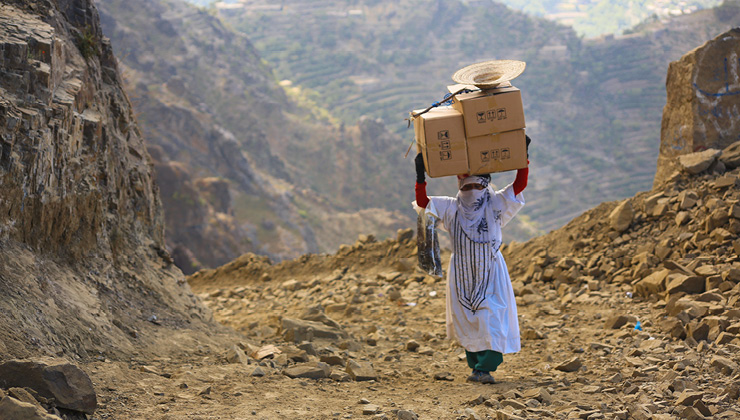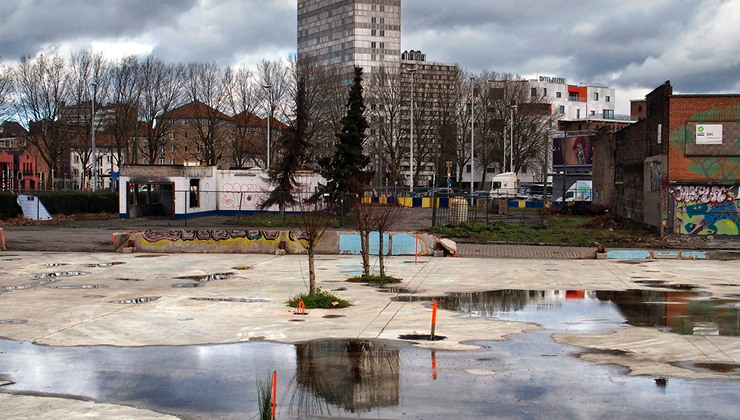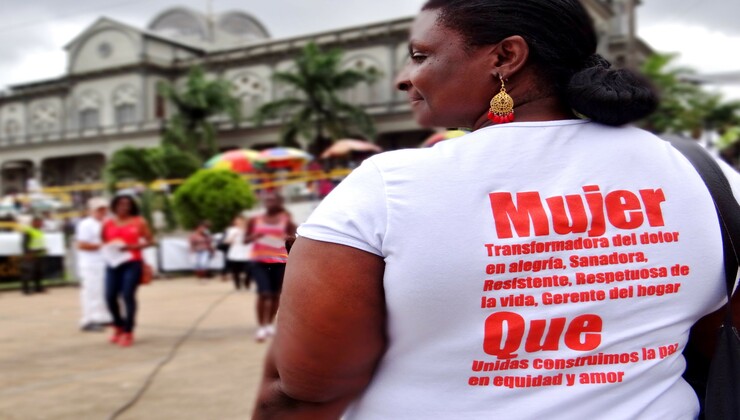Women peacebuilders at the frontlines face multidimensional threats and violence in Yemen. The Peace Track Initiative’s staff can only deplore a lack of international awareness to the issue of protecting women activists living and working in war-zones. As a new standard, protection mechanisms should be considered peacebuilding necessities.
In Yemen, despite attempts to de-escalate violence through international-led agreements, sustainable peace remains far from achieved. Discussing more effective conflict resolution paths is more than ever a necessity, and women’s involvement in peacebuilding and peacekeeping is without a doubt a missing key.
Through its unprecedented resolution 1325, the United Nations’ Security Council started to recognise the importance of women’s voices in the resolution and the prevention of conflicts. Yet, in Yemen and elsewhere, women who indeed get involved in peacebuilding face severe challenges that do not necessarily deter them from continuing their work as they find ways to resist an increasingly vicious environment. However, Yemeni resilient women peacebuilders should not be left alone and must be supported in order to reach a durable peace. By going over exclusive testimonies, this piece aims to highlight Yemeni women peacebuilders’ urgent needs and priorities of protection.
Since the beginning of the conflict in 2014, Yemeni women have played a central role as negotiators and mediators, whether it is for the releasing of victims of enforced disappearances, the opening of safe humanitarian corridors and the fight against child recruitment. Women who get involved in creating dialogs in war-zones however challenge those who abuse power, which makes them exposed to different patterns of security threats.
Despite groundbreaking initiatives on the ground, the current reality in Yemen shows that women peacemakers, humanitarian workers and political activists are arbitrarily detained, tortured and sexually abused and raped, and often locked up with their children, which adds another trauma for both the mother and the child.Torture and sexual abuse are becoming a tool of war against women and girls and violations and abuse of women rights have reached a historic level of gravity that Yemen didn’t witness before. Amid this vicious environment, women peacebuilders have no protection mechanisms available to help support them heal or continue their work.
Far more over than physical abuse, women peacebuilders tend to struggle to maintain their credibility and reputation. They usually become victims of smear campaigns in which they can get accused of being part of sex work-networks, especially for those who are arrested and detained for their work, and the case of Sonia A. underlines this reality. She used to have an organisation to support orphans of war and used her platform to denounce Houthis violence and impact on the economy.
She was kidnapped in 2019 and was locked in a secret Houthi prison for nearly a year, accused of being a spy. Like most women activists who get detained for their work, she also faced stigmatisation after her release. In addition to the moral charges pinned by the Houthis, she was also shunned by her community and society in general for being held in prison. This forced her to relocate to another city, and eventually to flee to another country because the threats did not stop. As even activists living in the diaspora express their fear for their families inside Yemen and for their own lives, with many receiving death threats from the male guardians of their families like their brothers.
As another way to threaten women activists’ work, Houthis have formed a female-led intelligence apparatus known as the Zainabiyat. Their responsibilities include searching women and houses, indoctrinating women and maintaining order in female prisons. The Yemeni government also put together a similar female security force named al-Fatimiat. In their last report, the UN’s security council’s panel of exerts on Yemen documented violations committed by both of these groups, including arbitrary arrests and detentions of women, looting, sexual assault, beatings, torture and facilitation of rape in secret detention centres.
In areas controlled by the government, the violations that women peacebuilders face are different, but as serious. Threats and accusations of terrorism, moral charges and sometimes accusations of being secular and away from religion are being used. Afraa Hariri is a human rights defender and a member of the technical advisory group for the UN special envoy to Yemen office. She received death threats and hate speech and was targeted in smearing social media campaigns. These threats increased as suspicious persons came to ask about her in her neighborhood to locate her residence. She had made an official complaint with the authorities in Aden, but they did not follow through the procedures to investigate these threats.
As organisations working on the ground in Yemen can testify, the number of cases is increasing and the capacities available to assist women peacebuilders needing help is not. Protection programmes are known as being the most underfunded programmes, which highlights an even more urgent need for sustainable, flexible, and long-term funds that would allow women living in war zones who are persecuted for their peace work to reach safety and most importantly still be able to help their community. Resettlement of these women is also proving to be another issue, since when applying for resettlement, Yemeni refugees aren’t given priority. Lobbying for an increase in the quota of acceptance of Yemeni women refugees in host and third countries is needed.
Because of COVID-19, donors are also de-prioritising allocations on gender justice and protection programmes and focusing or redirecting funds to COVID-19 responses. For first-respondents case workers on the ground, it is extremely hard to tell women who have just been freed from arbitrary detention and subjected to all forms of violence including torture and sexual abuse that they don’t have the ability to assist them because there is not enough funding anymore. As for the few existing protection services that currently exist like shelter houses, shelters tend to feel more like prisons than safe spaces since they restrict the ability of peacebuilders to mobilise their social network and continue their activism, while also imposing them to hand their phones and wear veils, which usually make them feel like they took a major step back.
By “willing to reach across the lines of conflict to engage in dialogue”, women peacebuilders expose themselves to mistrust from all sides, “including from within their own communities” (ICAN). As the dangers and barriers they and their work face are on a worrying rise, it is contradictory to expect women to get involved in peace processes if they are not also provided with protection mechanisms that assures their safety.
If UNSCR 1325 aspires to be effectively applied in Yemen, the risk and precariousness of the necessary work women activists do should be recognised and considered, especially in funding programmes for war-zones. The idea that peacebuilding can be achieved without protection is just disconnected from the reality faced on the ground by women.
Image: Woman walking for miles in besieged Taiz to secure food for her family. Ahmed Basha via Peace Track Initiative.
The views, thoughts and opinions expressed in this blog post are those of the author(s) only, and do not reflect LSE’s or those of the LSE Centre for Women, Peace and Security.





